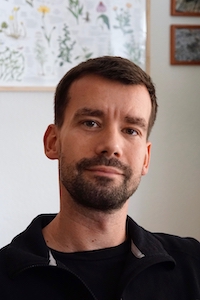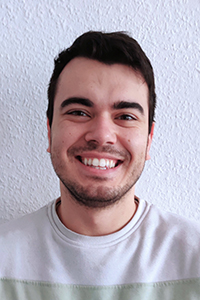K-M-I
Title: K-M-I Project (Artificial and Human Intelligent) – Competence Center for Transformed Work in Western Saxony
Duration: 12/2021 – 11/2026
The K-M-I Project (Artificial and Human Intelligent) project is investigating the sociotechnical challenges that arise for an organization as a whole, but also for individual employees when Artificial Intelligence (AI) methods find their way into companies. K-M-I connects industry players with experts from the science locations Leipzig, Chemnitz, and Zwickau. It thus supports the sustainable structural change of the region by building up competence regarding the use of AI methods.
Aims
The use of AI enables companies to establish new forms of work, develop new business models, and make work more efficient and humane. At the center of the project is the establishment of a competence center, which initially links scientific partners, technical companies, application, and network partners. The focus is on companies in the manufacturing sector (including mechanical engineering and vehicle manufacturing, suppliers, and subcontractors) in the region of the Central German coalfield and western Saxony.
Practical example created during the project
The bandwidth for the use of AI in the pilots ranges from data development and linking to approaches for the design of intra- and intercompany information flows and knowledge management. The data-based simulation of scenarios and the analysis of workloads is also included. Here, Leipzig University focuses on developing individual solution approaches for AI-based data management and data analysis. The evaluation of the entire process not only ensures the long-term usability of the results for practice, but also provides extensive knowledge about the transfer between science and practice. This contributes to the continuous competence development of the K-I-M and flows into the consulting of other companies in the Central German lignite mining area.
A concrete practical example created during the project: AI-based application to support processes for cost and machine runtime calculation in the manufacturing industry.
Technology
Based on a broad requirements survey, a framework for the design of artificially and humanly intelligent systems will be developed, which forms the core of K-M-I. Based on the methods and process models of this framework, realization scenarios in the form of pilot applications for the use of AI in companies will be developed. These scenarios will be implemented within the framework of the project together with the application partners.
Outlook
K-M-I will investigate which work design, organizational and technical measures should be taken in response to the AI-driven changes in the company to always keep the human aspect of value creation in mind in addition to technical innovation.
Team
Lead

Prof. Dr. Erhard Rahm
Leipzig University
Department of Computer Science, Database Group, Chair of Databases

Matthias Täschner
Leipzig University
DSC ScaDS.AI Leipzig
Team Members

Lucas Peter
Leipzig University

Jacob Pollack
Leipzig University

Michal Miazga
Leipzig University
- Oluwatomiwa Oni-Orisan (Wifa, ScaDS.AI)
Partner
- Institut für Angewandte Informatik e.V. – InfAI e.V.
- Leipzig University
- Technische Universität Chemnitz
- Westsächsische Hochschule Zwickau
- KSG GmbH
- Kieselstein International GmbH
- WIN Wartung und Instandhaltung GmbH
- Vitesco Technologies GmbH
- DBI Gas- und Umwelttechnik GmbH
- Magna Exteriors (Meerane) GmbH
- CPT Präzisionstechnik GmbH
- Wiewald GmbH
- Wittenbecher Maschinenbau GmbH
- Automotive Cluster Ostdeutschland – ACOD GmbH
- Data Virtuality GmbH
- Fester & Zander Zerspanungstechnik GmbH
- Stadt Leipzig
- Kindervereinigung Leipzig e.V.


